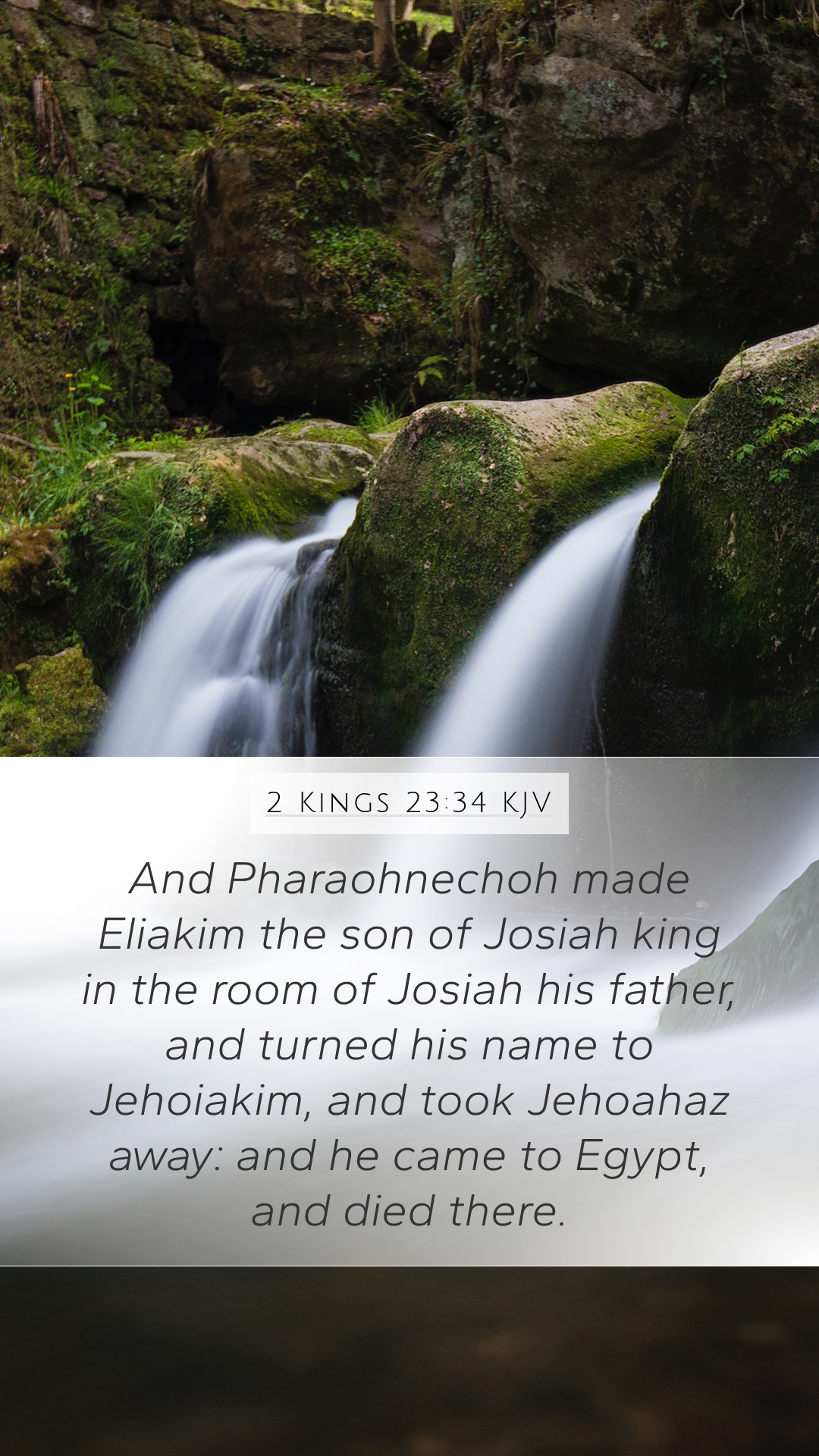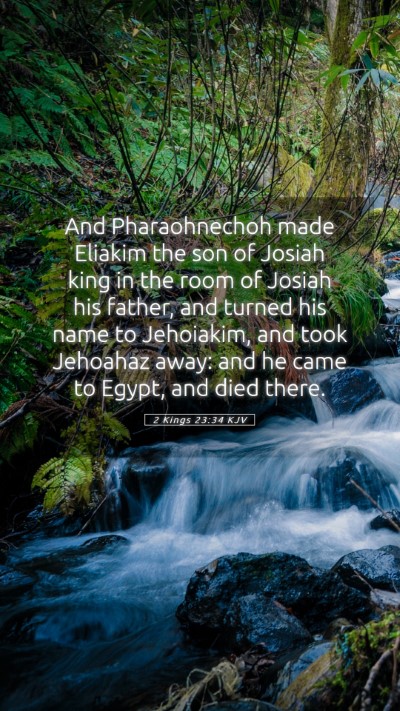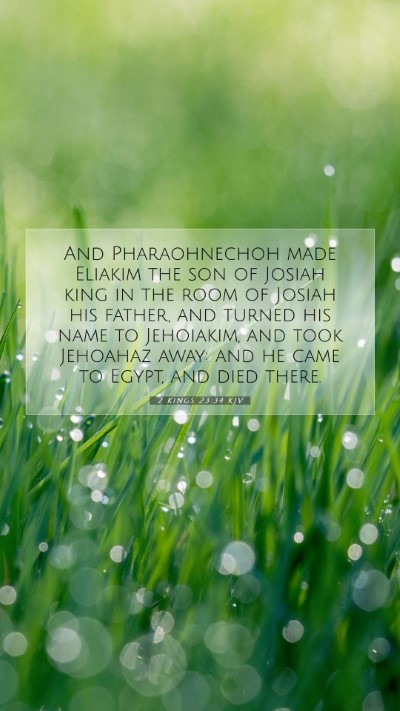Understanding 2 Kings 23:34
This passage from the Old Testament serves as a significant point in understanding the historical narrative concerning king Josiah and the leadership of Judah. In this verse, we observe the political dynamics and the repercussions of Josiah's reign on the future of the nation.
Bible Verse Meaning
2 Kings 23:34: "And Pharaohnechoh king of Egypt put him to death at Megiddo, when he had seen him. And his servants carried him in a chariot dead from Megiddo, and brought him to Jerusalem, and buried him in his own sepulcher. And the people of the land took Jehoahaz the son of Josiah, and anointed him, and made him king in his father's stead."
Context and Historical Background
This verse is situated in a pivotal point in the history of Israel's kingship. After the reign of Josiah, a king known for his religious reforms and efforts in restoring the worship of Yahweh, Egypt intervenes decisively. Pharaoh Necho of Egypt defeats Josiah at Megiddo, a place rich in historical significance, marking the decline of Israel’s sovereignty.
Analysis and Commentary
Drawing insights from well-respected public domain commentaries:
- Matthew Henry observes that the death of Josiah was a tragic loss for Judah, emphasizing his devotion to God and the reforms he enacted. Henry highlights the fact that Josiah's death serves as a turning point, leading Judah into further consequences due to the invasion from a powerful neighboring kingdom.
- Albert Barnes provides an analysis of Pharaoh Necho's military strategy. Barnes suggests that this action was not merely a political maneuver but also a reflection of God's judgment on the nation for its unfaithfulness. The burial of Josiah shows the respect that his people still had for him, despite the calamity that befell them.
- Adam Clarke emphasizes the sorrowful nature of the events. He notes that Josiah's reign was a time of restoration for the worship of Yahweh, making his untimely death a tragedy not only for his family but for the entire nation that had experienced a revival during his time. Clarke details the symbolic implications of the burial process as a reflection of the people's grief and loss.
Theological Insights
This verse prompts readers to reflect on the deeper theological implications of leadership, fidelity to God, and the consequences of sin within a nation. The immediate aftermath of Josiah's death, where Jehoahaz is raised as king, shows the rapidity with which political power can shift, indicating the transient nature of human authority.
Application to Daily Life
When examining 2 Kings 23:34 for personal application, one can consider the following:
- The importance of leadership in faith communities and the impact one individual can have on the spiritual direction of a nation or group.
- Realizations of the consequences of straying from faithfulness to God, as exhibited by the subsequent kings after Josiah.
- Reflection on how political decisions relate to spiritual conditions of a society—drawing parallels between ancient Israel and contemporary issues.
Further Study and Cross References
This passage is related to several key cross-references that enrich the understanding of its themes:
- 2 Chronicles 35:20-24 - Provides additional context surrounding the events leading to Josiah's death.
- Jeremiah 22:10-12 - Reflects upon the subsequent leadership in Judah following Josiah's reign.
- Ezekiel 19:1-9 - A lamentation that connects to the familial legacy of kingship in Judah.
Conclusion
In summary, 2 Kings 23:34 serves not only as a historical account but also evokes profound questions about leadership, faithfulness, and divine judgment. The analysis from renowned commentators adds depth to its meaning, urging readers to engage deeply with the text in their Bible study sessions. For those looking for Bible study lessons or Bible study guides, this passage invites exploration of the intersections between biblical history and contemporary faith practice.
SEO Keywords Integration
This exploration aligns well with various Bible verse meanings, Bible verse interpretations, and Biblical exegesis, offering valuable insights for Bible study groups and those engaged in online Bible study. These reflections aid in understanding Scripture for both personal edification and communal learning.


